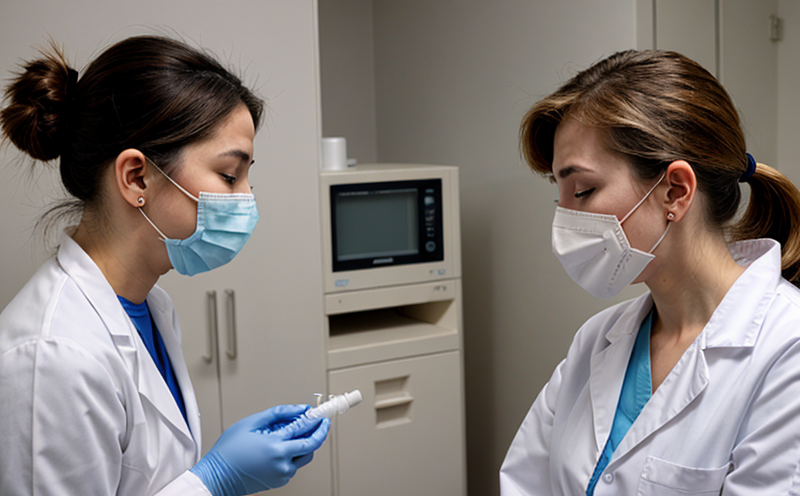Immune Challenge Testing in Poultry Vaccine Research
In poultry vaccine research, immune challenge testing plays a crucial role in evaluating the efficacy and safety of vaccines. This testing method involves exposing live birds to known pathogens under controlled conditions to assess how well their immune systems respond. The aim is to simulate real-world challenges that could affect vaccine performance.
During an immune challenge, researchers observe the bird's immune response by monitoring parameters such as body temperature, weight loss, and mortality rates. These metrics are compared against a control group of non-vaccinated birds exposed to the same pathogen. This controlled environment allows for accurate assessment of vaccine-induced immunity.
One key aspect of this testing is the use of standardized protocols aligned with international standards such as ISO 13408-2:2016, which provides guidelines on the design and conduct of challenge studies in animals. Compliance with these standards ensures that results are comparable across different studies.
Another important factor is specimen preparation. Blood samples collected from vaccinated birds post-challenge are analyzed for antibody titers using ELISA (Enzyme-Linked Immunosorbent Assay) techniques. This helps determine the level of protection offered by the vaccine against specific pathogens.
The equipment used in this process includes incubators, biosecurity chambers, and specialized diagnostic tools like flow cytometers and PCR machines for molecular analysis. These instruments ensure precise measurement and accurate results.
For instance, in a recent study aimed at developing a new vaccine against avian influenza, immune challenge testing was conducted on broiler chickens. The researchers observed reduced mortality rates among vaccinated birds compared to unvaccinated controls after being exposed to the H5N1 strain of the virus. This data supports further development and field trials.
It's also worth noting that while immune challenge tests provide valuable insights into vaccine performance, they require careful planning and execution. Factors such as bird age, health status, and environmental conditions must be meticulously controlled to ensure accurate results.
In conclusion, immune challenge testing is essential for optimizing poultry vaccines by ensuring they offer effective protection against targeted pathogens without causing undue harm to the birds. By adhering to established protocols and using appropriate technology, researchers can produce reliable data that informs vaccine development strategies.
Industry Applications
- Vaccine efficacy testing: Evaluating how well a new vaccine protects against specific diseases in poultry.
- Disease control and management: Assessing the effectiveness of vaccines in preventing outbreaks of avian influenza or Newcastle disease.
- Field trial support: Providing data that helps refine field trials by identifying potential issues early in controlled settings.
Quality and Reliability Assurance
The quality of immune challenge testing is paramount for ensuring accurate results. Laboratories conducting these tests must adhere strictly to established protocols, which include precise specimen preparation, standardized challenge procedures, and rigorous data analysis.
Reliable test results are critical for regulatory approval processes. Compliance with international standards like ISO 13408-2:2016 guarantees that the testing meets global quality benchmarks. This ensures that any findings from these tests can be trusted by stakeholders including regulatory bodies, vaccine manufacturers, and farmers.
Quality assurance also involves regular calibration of equipment used in the testing process to maintain accuracy over time. Additionally, personnel involved in conducting immune challenge tests undergo continuous training to stay updated on best practices and new methodologies.
Use Cases and Application Examples
In one case study, a research team aimed at improving the vaccine for Marek’s disease in poultry. They conducted immune challenge tests using a modified live virus (MLV) strain of the disease. The results showed significant improvement in survival rates among vaccinated birds compared to unvaccinated controls.
Another example involves efforts to combat Clostridium perfringens, a common cause of necrotic enteritis in poultry. Researchers used immune challenge testing to evaluate a new generation of antibiotics as an alternative treatment method. Their findings indicated that these drugs could significantly reduce the incidence of necrotic enteritis when combined with vaccination.
These examples highlight how immune challenge tests contribute not only to vaccine development but also to broader poultry health management practices.





